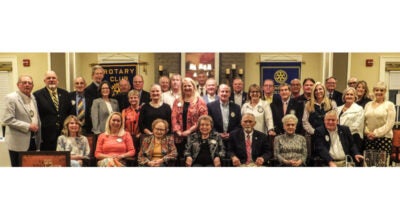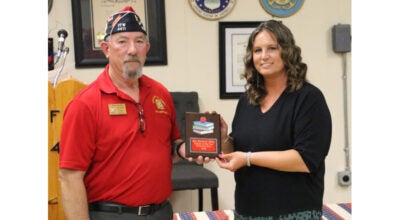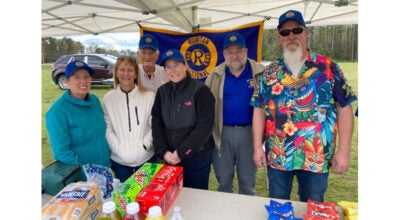Saying thanks and meaning it
Published 5:39 pm Sunday, November 27, 2022
|
Getting your Trinity Audio player ready...
|
I can remember when I was a little boy. Someone would do something nice for me, or they would say something nice. My mother or father would say to me, “Now what do you say?” They meant that it was time to say the words “Thank you.”
It was time for me to do the thing that was expected. Make no mistake, I think that expectation, that training, was good. It was what should happen. But any of us who have ever been made by a parent to say thanks for something can understand that living out or being thankful is harder than saying the words, “Thank you.”
If you were like me, let’s admit there were times when we meant it more than we might have at others. Our calendars and our tradition as Americans tell us it’s Thanksgiving almost. We are cued by habit and by calendar to say, “Thanks.”
But gratitude is more than just what we say. How can we become thankful? How can we be what we have been trained to say? In John 6: 35-45, we have Jesus’ teachings just after a little boy has volunteered that he had some food! It was brought to Jesus who blessed and broke it. It was multiplied and was sufficient for all-around.
5,000 men plus all the women and children who probably were there. They were fed and there was much food left over. This is every bit a story of abundance in what started out as an episode about what they lacked.
In John Claypool’s “Tracks of A Fellow Struggler,” we hear of a brutal pilgrimage where his 10 year old daughter died after a valiant battle with cancer. “Every day with Laura Lue was a gift,” Claypool reflects. “I was never owed, never entitled to one day with her. God gave her to us, and for that we must be grateful. We must give thanks for what we have had, as we must with every good gift in our lives.”
Jesus says here in John 6, “Do you realize I am sent by the Father? And do you realize that I am the ‘Bread of Life’?” I am. I am. When Moses asked who he should tell the Egyptians had sent him? God said, “Tell them that ‘I am’ sent you.” Now, Jesus says to all of us, “I am.” He will soon add “I am the good shepherd. I am the bread of life. I am the Son of God.”
Do you understand what Jesus is saying? Our impulse is usually to find something that will satisfy us in the moment. But we will be hungry again. If we receive Jesus as bread of life, those deeper hungers for meaning, inclusion or strength in difficulty might satisfy us longer than the things we normally seek after.
The hope to find something that will allow us to face all of the difficult things we face in our world today might come to us from the bread of life. Jesus offers us something for the inner parts of our lives that will impact the living of our days and the living of our nights.
My friend and fellow pastor, Kevin Meadows, says “Holidays show us working so hard to be sure everyone gets there, to be sure all of the food makes it. Maybe we work hard on the wrong thing, and our thankfulness needs to be the primary thing.”
This time every year our calendars tell us to serve a big meal, gather with others if we can, and say “Thank you.” If you’re like a lot of other people, some years that’s easier to do than in others. Some years, the calendar tells you what to say but you may have to say it through clenched teeth.
I don’t know about you, but I wish I reacted to hardship better than I do. I have known so many who reacted in easy ways. That is, in their hardship they gave in to understandable bitterness and frustration. They wallowed in their pain and in the process, managed to make life difficult for everyone around.
Sometimes, I have risen to do better than that. But at times, I confess, I do no better. What I am inspired by are those few who have gritted their way through great hardship and have held onto their sense of gratefulness. They have held onto their awareness of God’s grace and presence.
Here is my wish. I bid you a gentle, grace-filled Thanksgiving.
Dr. Charles Qualls is senior pastor at Franklin Baptist Church. Contact him at 757-562-5135.





